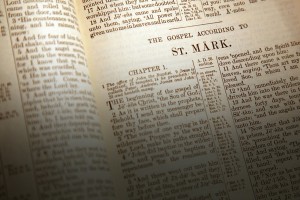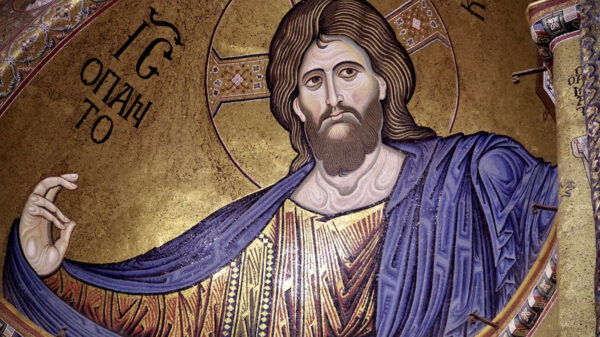
When we offer this kind of objection, we start (of course) by denying the supernatural power of God to guide the Biblical authors and protect their memory. But as an atheist, I had no problem beginning with this denial; I was already denying the existence of God, let alone God’s power to protect the eyewitness account. My distrust in the ability of eyewitnesses to recall and transmit the account orally seemed very reasonable back when I was a non-believer. I simply could not fathom the writers being able to transmit the necessary and important details from one person to another without corruption or loss of information. After investigating this more thoroughly, however, I do think we have good reason to trust the accurate transmission of the gospels.
Personal Reverence
The content of the gospel message was of critical importance to both those who communicated it and those who accepted it (and later re-communicated it to the next generation). These folks weren’t passing along mom’s meatloaf recipe; hey were testifying as eyewitnesses to the greatest life ever lived, and they understood their role as eyewitnesses from the start (read through the Book of Acts to see what I mean).
Persistent Repetition
We’ve also got to remember that the first century culture in which the disciples operated was a culture of oral transmission. A lot has been written about this, but let me give you an example I experienced personally last week, as I visited and ministered with Andy Steiger from Apologetics Canada. Andy is a slave driver, and he asked me to give 10 talks over a period of 7 days. Most of these were talks on the reliability of the Bible; the same talk, repeated many times over the course of that week. An important volunteer at Apologetics Canada, Tyson Bradley, came to every event. At one point, after hearing the same talk about 5 times in a row, he told me that he could finish, my sentences for me. I laughed until he started to repeat me line for line (it wasn’t so funny then). In just five repetitions, Tyson had memorized my message. Imagine what he could do if he hung out with me for three years like the disciples did with Jesus.
Prompt Recording
Beyond this, those who memorized the repeated teaching of Jesus offered what they remembered to those who recorded it within the lifetimes of the original eyewitnesses. The early church Bishop, Papias, claimed that Mark recorded the preaching of Peter as he described the life and teaching of Jesus. Having access to the man (Peter) who (like Tyson) sat under repeated teaching until he had memorized it thoroughly, Mark then recorded the truth about Jesus as Peter delivered it to him. The case for early dating helps us to have confidence that this occurred very early in history.
As a skeptic, even without embracing the divine protection of the gospel accounts, I found that the circumstances surrounding their transmission and authorship was reasonable. Share on X
As a skeptic, even without embracing the divine protection of the gospel accounts, I found that the circumstances surrounding their transmission and authorship was reasonable. Now, as a Christian, I realize that God protected this entire process and orchestrated the events in such a way as to allow us to have a reliable record of the life, teaching, death and resurrection of Jesus.

J. Warner Wallace is a Dateline featured Cold-Case Detective, Senior Fellow at the Colson Center for Christian Worldview, Adj. Professor of Christian Apologetics at Talbot School of Theology, Biola University, author of Cold-Case Christianity, God’s Crime Scene, and Forensic Faith, and creator of the Case Makers Academy for kids.
Subscribe to J. Warner’s Daily Email
Save
Save
J. Warner Wallace is a Dateline featured cold-case homicide detective, popular national speaker and best-selling author. He continues to consult on cold-case investigations while serving as a Senior Fellow at the Colson Center for Christian Worldview. He is also an Adj. Professor of Christian Apologetics at Talbot School of Theology, Biola University, and a faculty member at Summit Ministries. He holds a BA in Design (from CSULB), an MA in Architecture (from UCLA), and an MA in Theological Studies (from Gateway Seminary).









































Pingback: Establishing the Reliability of the Old Testament: The Ardent Testimony of the Ancients | Cold Case Christianity
Pingback: Establishing the Reliability of the Old Testament: A Timely Test of Transmission | Cold Case Christianity
Pingback: Can We Trust the Gospels, Even If They Were Transmitted Orally? | A disciple's study
Pingback: Can We Trust the Gospels, Even If They Were Transmitted Orally? -IKTHUS.NET
Pingback: The Top 10 Cold-Case Christianity Articles from 2016 | Apologetics.com
Pingback: The Top 10 Cold-Case Christianity Articles from 2016
Pingback: Can We Trust the Gospels, Even If They Were Transmitted Orally? | Cold Case Christianity – Elders Scrolls